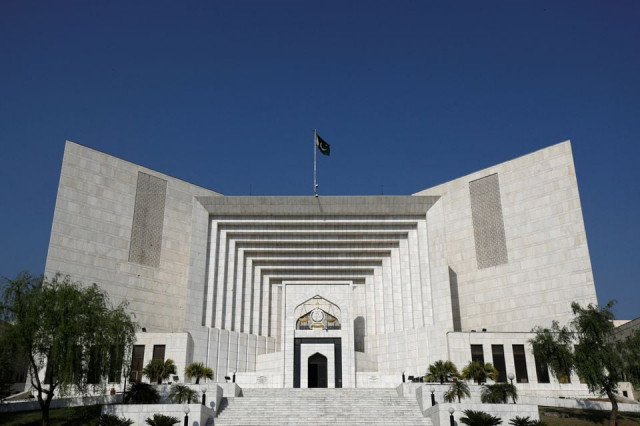SC redirects privatisation matter to parliament
Apex court disposes of pleas against KESC privatization

The apex court on Tuesday disposed of some petitions filed against the privatization of the Karachi Electric Supply Corporation (KESC)—now called K-Electric (KE)—after the petitioners including the Jamaat-e-Islami (JI) party withdrew their pleas.
When a three-judge bench led by Chief Justice of Pakistan (CJP) Umar Ata Bandial and comprising Justice Athar Minallah and Justice Ayesha Malik resumed hearing of the case, JI’s counsel Rasheed A Rizvi contended that the K-Electric management had not implemented the privatization agreement.
“The privatization of the power distribution company should be cancelled,” he said.
Justice Ayesha Malik, however, asked the counsel as to how could the court issue such an order given the fact that it had already ruled that such matters be taken up with the National Electric Power Regulatory Authority (Nepra). Nepra is responsible for regulating electricity supply in Pakistan.
Read: PDM’ made judiciary correct course
“How could the court cancel privatization of the KESC? Determining the power tariff is the job of Nepra,” Justice Malik said.
Justice Athar Minallah noted that the matter of the KESC privatization could not be heard under Article 184 (3). “Such matters should be referred to relevant forums.”
The judge admitted that a lot has happened in the past in Article 184(3) cases. “The Pakistan Steel Mill case was also heard under Article 184(3),” he said.
Justice Athar Minallah asked Rizvi why the court should take up this case against the privatization of a power utility. He said the JI is in parliament and should raise the issue there. He added that the request under Article 184(3) is also against the economic policy of the government.
The JI’s counsel contended that people turn to the judiciary when parliament fails.
Justice Minallah, however, took exception to this statement.
“Don’t say that parliament has failed. Respect the parliament. The parliament fails when there is no respect for it. Raise this matter in the parliament instead of bringing it to the court. The parliament will strengthen only with such measures,” he said.
The CJP said the two judges have raised some legal points.
He said it is easy to cancel things but difficult to create. He said the KESC was privatized as it was not performing its function properly. “But it is difficult to go into detail at this stage.”
Referring to an observation he made a day earlier, the CJP clarified that if the SC writes in its judgment that it wants to stay away from economic issues then other forums will also say the same thing.
“The Supreme Court does not have expertise in economic matters and therefore it will not interfere in issues related to the economy,” CJP Bandial said on Monday while hearing the same case.
The CJP said it would be appropriate if the petitioner withdrew their requests and went to the appropriate forums. He appreciated the role that the JI is playing to effect political reconciliation. “But we don’t want to delve into this case.
A day earlier, the CJP had told the petitioner’s counsel that he might approach the relevant high court against privatization of the company that distributes power across the country’s economic hub Karachi.
“The parliament has also made two laws with regard to Section 3 of Article 184. We are listing old cases for hearing just to know if they are relevant or not,” Justice Bandial said. “Moreover, it has been 18 years since the utility was privatized,” he added.
The KE is a publicly listed company incorporated in 1913 as the KESC. Privatized in 2005, the KE is the only vertically integrated utility in Pakistan supplying electricity within a 6500 km square territory including Karachi and its adjoining areas.
The majority shares (66.4%) of the company listed in the PSX are owned by KES Power, a consortium of investors. The Government of Pakistan is also a minority shareholder (24.36%) in the company.


















COMMENTS
Comments are moderated and generally will be posted if they are on-topic and not abusive.
For more information, please see our Comments FAQ